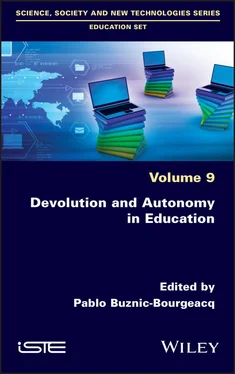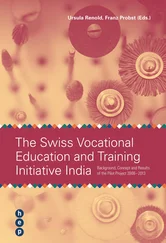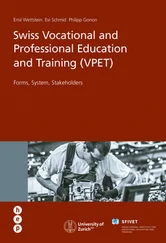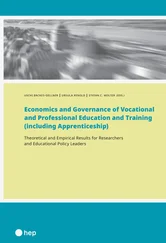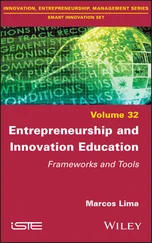The concept of devolution is strongly attached to the specific objects it allows us to apprehend. Its didactic roots are the sign of its originality. However, being more particularly born of mathematics, it also carries with it the sensitivity of mathematics. Indeed, beyond a project of autonomy, it underlines the almost univocal connection between the situation constructed by the teacher and the knowledge that he or she aims to have constructed in relation to the responsibility of the learner engaged in this situation: “knowledge is entirely justified by the internal logic of the situation” (Brousseau 1998, p. 59). The dream of the fundamental situation, corresponding to knowledge, can be accomplished from mathematics. It has been accomplished with exemplary rigor by Guy Brousseau and his collaborators. However, this accomplishment remains more difficult, and certainly undesirable, in many other fields of knowledge. As Chantal Amade-Escot shows, for example, it finds its limits in PE: “the solution to the problem cannot be canonical […]; in physical education, in many cases, the adidactic situation (which one wishes to devolve to the students) can hardly be completely stabilized. It depends on student activity” (Amade-Escot 2006, p. 96). The analysis of the processes of devolution in a variety of disciplines is then also an invitation to better understand these disciplines as such, to better grasp their epistemological specificities. By analyzing what really deserves to be transferred in relation to the responsibility of the learners, we can surely better understand what underlies the essence of the disciplines in which this transfer takes place. To enter a discipline, to really exist in it, to become responsible for it, to assume the status of a disciple as both product and producer of the discipline, is perhaps what devolution aims to bring about.
In a way, the study of the processes of devolution in a variety of disciplines allows Yves Reuter and his team to pursue their project when they focus on thinking about disciplines from the disciplinary experiences of those who experience them by replaying them. The aim is to analyze:
The effects of disciplinary operations. It is a question of […] understanding the ways in which students exist in the disciplines, i.e. their different ways of being, feeling and positioning themselves […] in these spaces of teaching and learning and, in addition, understanding what they get out of them and what remains for them (Reuter 2014, p. 58).
What is left for a subject with a background in mathematics, literature or geography? Surely more than a formalized and formalizable knowledge, perhaps, in fact, what has really been devolved to it.
1.2.2. The work of the teacher and the activity of the devolving subject
Once the analysis of the objects of devolution has begun, once the researcher knows a little more about what the aim of the responsibility required, a research space appears particularly well illustrated by the concept of devolution: the work of the teacher, in other words, the activity of the devolving subject. Understanding the conditions, constraints, modalities, opportunities and difficulties that structure the processes of devolution allows us to better grasp the foundations of the professional activity of teaching. As Maël Le Paven and his collaborators point out with regard to the conceptual filter of devolution, “certain events or behaviors in the classroom would otherwise remain unseen” (Le Paven et al . 2007, p. 9). For the concept carries with it its paradox: it seeks to analyze the activity of a subject who fades away, it aims to capture a form of absence where presence is at its peak, and it aims at the activity of a mediator rather than the passivity of an actor. We will then first agree on the focal point induced by the concept: “the question of devolution is posed more on the teacher’s side” (Amade-Escot 2006, p. 96) and with it “it is indeed the teacher’s activity, within the didactic situation, that is at issue” (Zaragosa 2006, p. 418). Devolution will even constitute one of the four pillars of the structure of the didactic action of the teacher, alongside the activities of definition, regulation and institutionalization (Sensevy 2007). In short, the concept of devolution is above all a way of rethinking the work of the teacher in action and is thus notably different from the concept of transfer. If the analysis of learners’ activity is inevitably necessary to understand the phenomena of devolution, as a concept, it invites us to enter the didactic system through the work of the teacher, through what the latter does so that the former can act together.
We can then agree on another perspective: the concept describes a paradox, a tension, a tug of war that testifies to the subtlety of this work. For its aim is indeed to “make people accept” and, moreover, to make people accept something that is no less important, a “responsibility”. By remembering that “all responsibility refers to the experience of the impossible” (Hubert and Poché 2011, p. 28), we will come face to face, with the question of devolution, with the impossibility that is the basis of the teaching profession, itself already widely described since Sigmund Freud did so (1937) and subtly problematized by a few more contemporary thinkers attached to questions of autonomy (Castoriadis 1990; Cifali 1999; Descombes 2004). Being responsible for the other’s responsibility is a particularly delicate situation that is a sign of teaching professionalism. More precisely, for Guy Brousseau, the concept of devolution originates in the challenge of the teacher in the face of this delicate situation, a challenge that the tutor takes up in order to found his or her object:
We don’t see how we could summon the subject. The teacher has Gaël in front of him and Gaël is not there. He has to commit himself personally to what he knows or does not know […]. It is necessary to unshackle him from this attitude, and this must depend on the conditions and the situation, not only on a personal evolution (Brousseau 2006, p. 410).
Faced with the consistency of such a challenge, we must then measure the extent of the teacher’s work as understood in relation to the concept of devolution. It does not simply consist of analyzing the moment when the teacher, faced with his or her students, having defined the constraints of the situation in which he or she wants them to act, asks them to take responsibility for their learning. It is not simply a matter of thinking, constructing and analyzing a task that is engaging for the students. The challenge is to analyze an entire process that organizes the transfer of responsibilities. Claire Margolinas’ work on the issue of devolution allows us to grasp this scale of analysis:
Devolution, as a process, and not as a fleeting moment in the teacher’s activity, encompasses both what allows the student to accept the problem, what allows this acceptance to continue, but also what allows the student to produce his or her response, and to recognize the effects of this production […]. Class work is only the most visible part of his or her professional activity. The knowledge that we are looking for will therefore relate to a situation of which the intervention phase in class is only one element (Margolinas 2006, p. 331).
With its objects, the devolution invites us to think about its spaces and temporalities in all their extent. This is also what this book proposes, and most of the chapters present a study of devolution on a large scale, well beyond a specific situation. For example, Florian Ouitre questions devolution in the field of teacher training. He sees it in a complex way, as an embedding of problematization processes, where the devolution of the problem oscillates in a game of small and large loops, between its position, its reconstruction, its resolution and its socialization. In the same field, but from a different approach, Bruno Hubert questions a whole professional writing system in which storytelling, narration, fictionalization and sharing with peers constitute a complex space of devolution deployed over a consequent tempo.
Читать дальше
